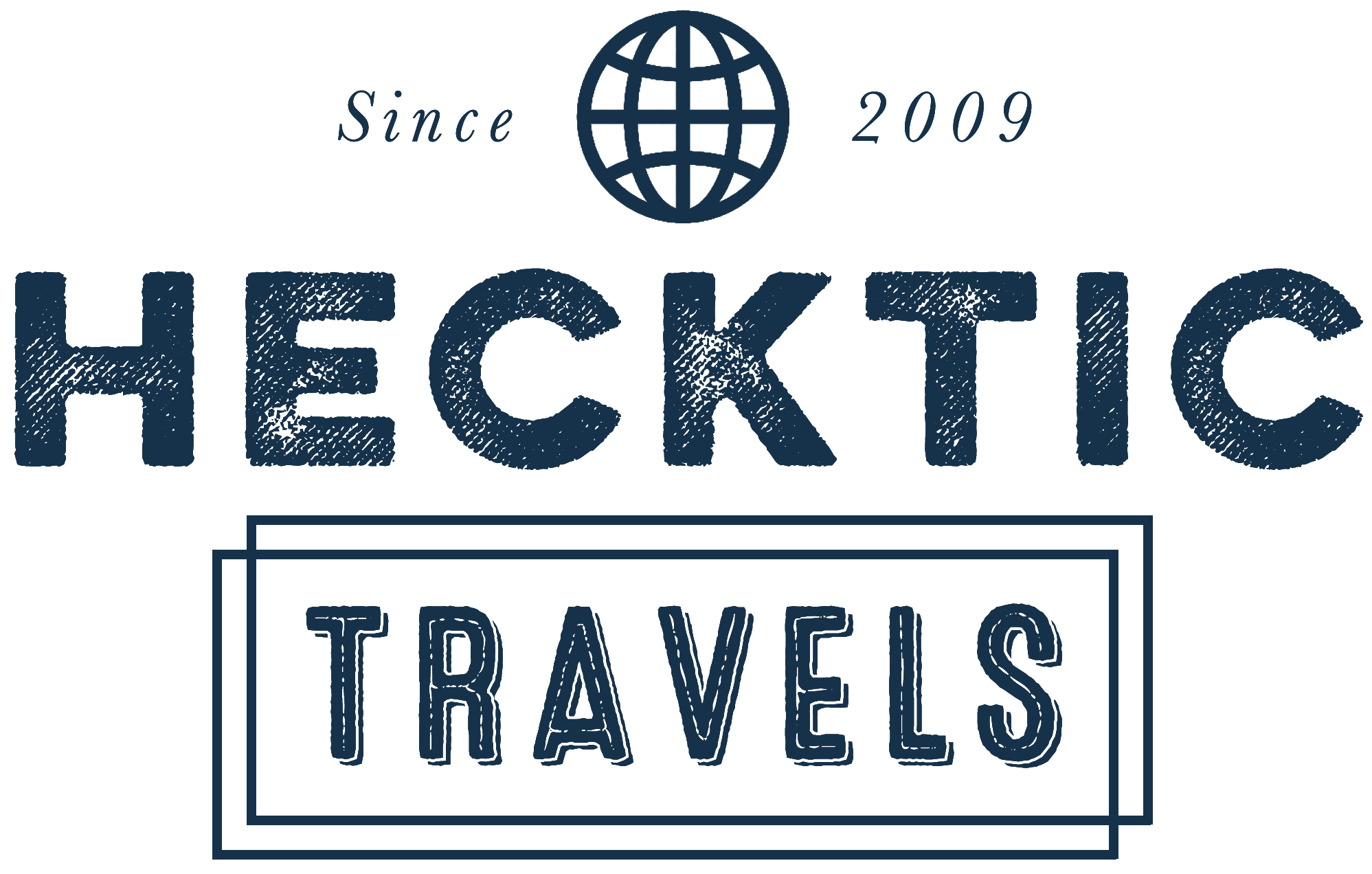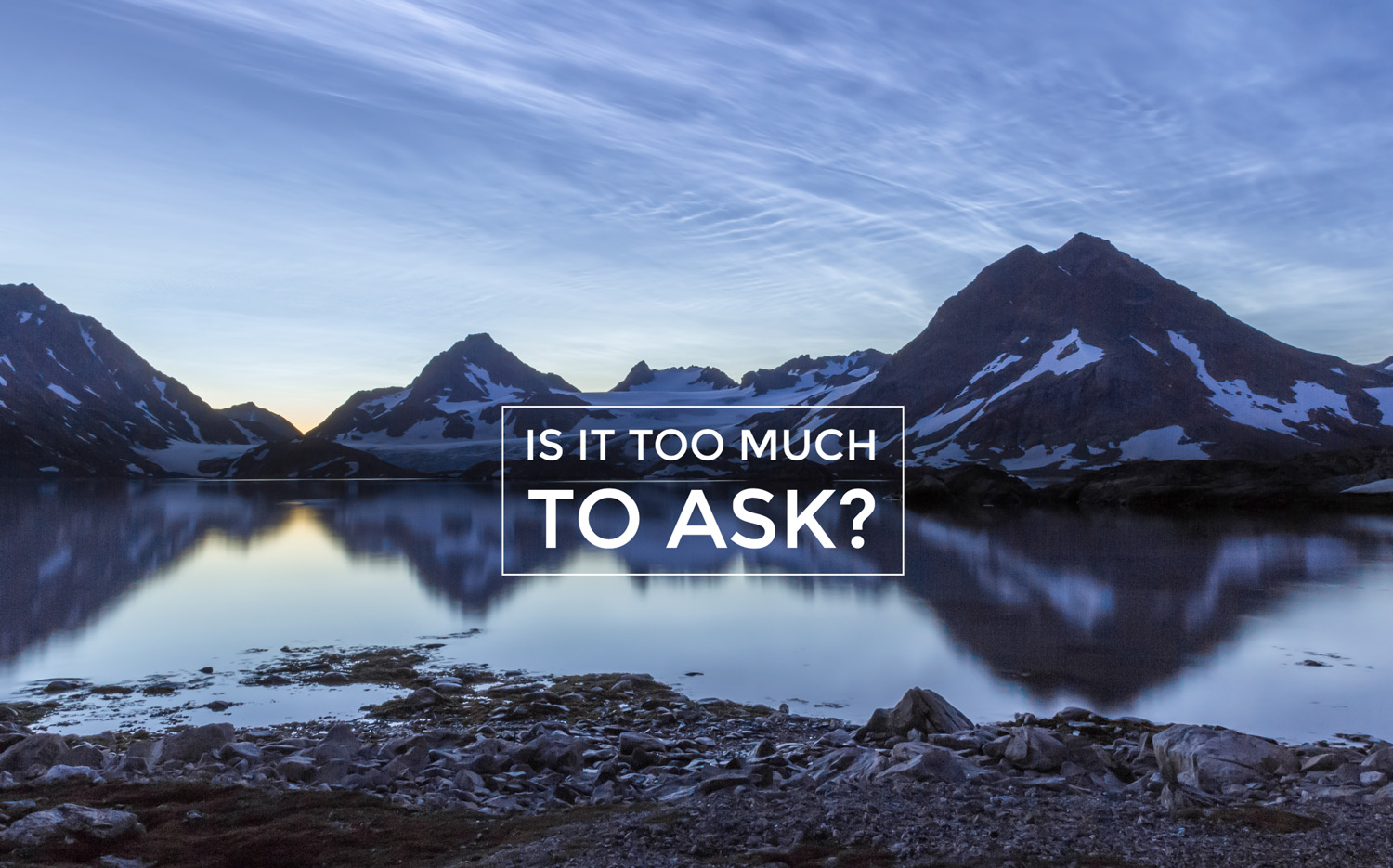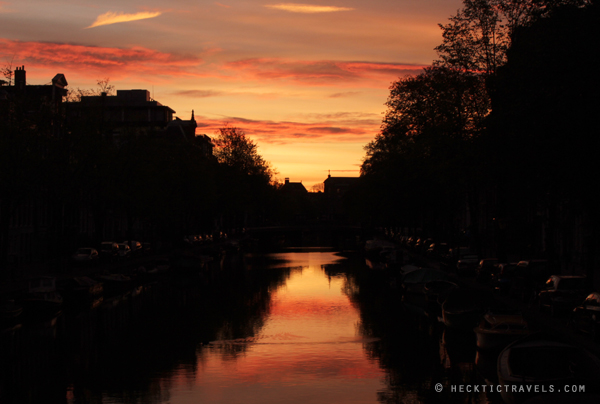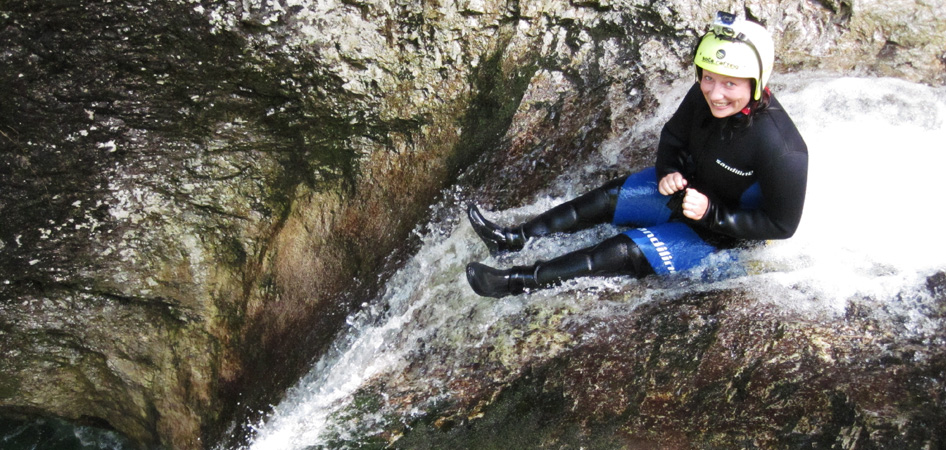Is it too much to ask?
Words by Dalene Heck / Photography by Pete Heck
I say that humans are the only ones in this world that need everything within it. But there is nothing in this world that needs us for survival. We aren’t the masters of the earth. We are the servants.
~ from “The Orenda” by Joseph Boyden
So what then, are each of us doing to serve this planet?
Or at the very least, what can we do better?
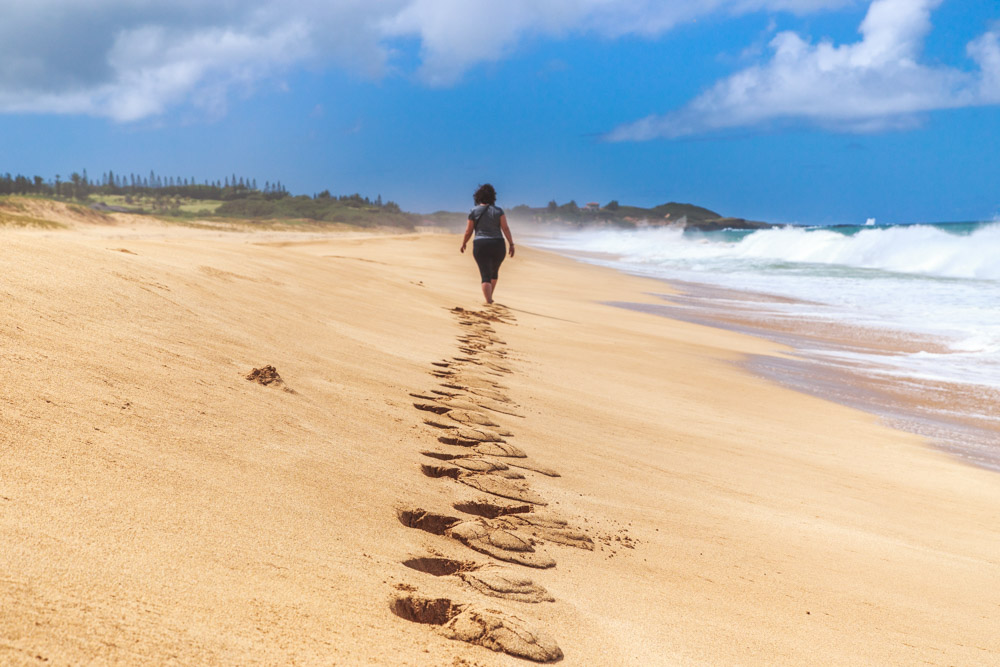
It is said that travel is the best teacher, and you can’t be surprised to know that we firmly believe this. And with almost eight years of nomadic living under our belts, you can bet that we have learned much on our many journeys around the globe. Not just about whose cuisine we prefer, where our favourite hikes are, or the differences between ourselves and others. But also about what it means to respect those differences, and ultimately, how to tread lightly. As impactful as our worldly experiences have been on us, we can’t forget that our visits affect others in turn.
We’ve made mistakes. We’ve taken tours that we probably shouldn’t have. There are times when we could have spent our money more wisely, and occasions in which I wish one of us would have used our voice in objection to things we’ve seen.
And so when the World Travel and Tourism Council (WTTC) approached us to be a part of their campaign urging everyone to pledge to do better and to encourage sustainable tourism, we eagerly agreed. Not only because we know that we have room for improvement, but also because we are confident in this community of travellers that we have built. We know that if we can mobilize our readers into taking these pledges with us and encourage others to do the same, then we can have a real impact.
Because ultimately, none of these promises are too much to ask. In fact, they are too important to be ignored.
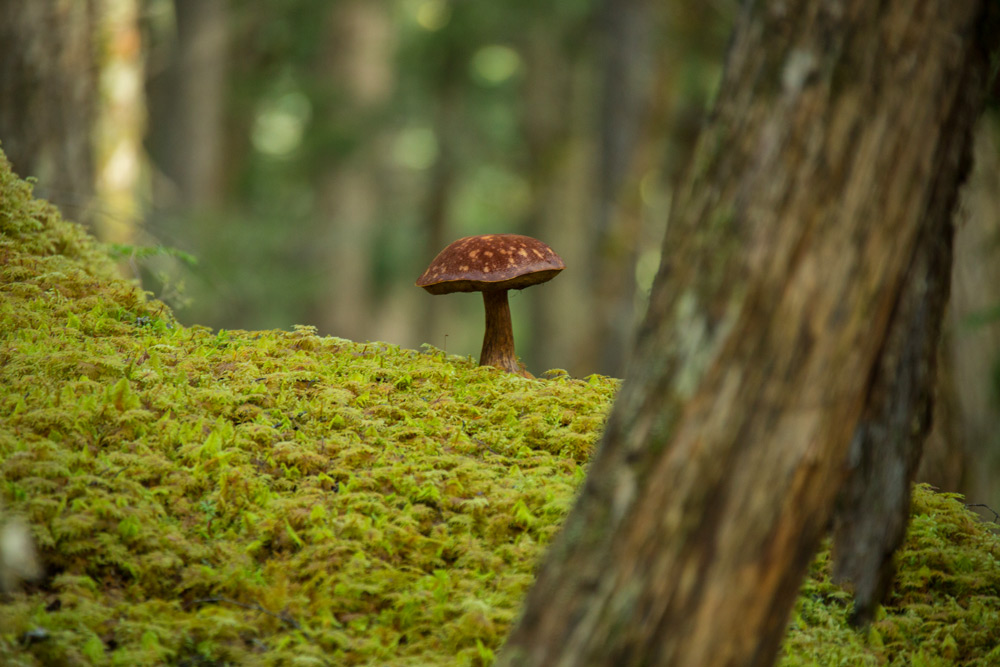
There are just ten simple pledges, and while we have committed ourselves to all of them, there are four that we specifically want to highlight.
WE PLEDGE TO BUY LOCAL
Being a citizen detective is not an easy job. It can be an all-consuming activity to constantly patrol where we spend every dollar to ensure it is having the most positive impact. But when you are traveling, especially in less-developed countries, the impact of your everyday spending can be substantial.
And while tourism in general spreads the money, it’s local-level tourism specifically that has such a profound effect on poverty alleviation — and it’s here that travellers and the industry must more fully commit to using tourism for good. source
and
Researchers found that “in Thailand [an] estimated 70% of all money spent by tourists ended up leaving Thailand (via foreign-owned tour operators, airlines, hotels, imported drinks and food, etc.). Estimates for other Third World countries range from 80% in the Caribbean to 40% in India.” This trend, dubbed ‘tourism leakage,’ stems from all-inclusive travel packages that prevent travellers from interacting with local communities — meaning “not much opportunity is left for local people to profit from tourism.” source
In North America, the movement to buy local has hit the mainstream. And there is no reason not to put the same consideration into how your travel dollars are spent.
HOW? Avoid the chain hotels and restaurants. Buy souvenirs only from local craftspeople. Use tour companies that hire locals. Not only will your important tourism dollars be less likely to move up and out of the pockets of those who need them most, but your travels will also be all the more enriching.
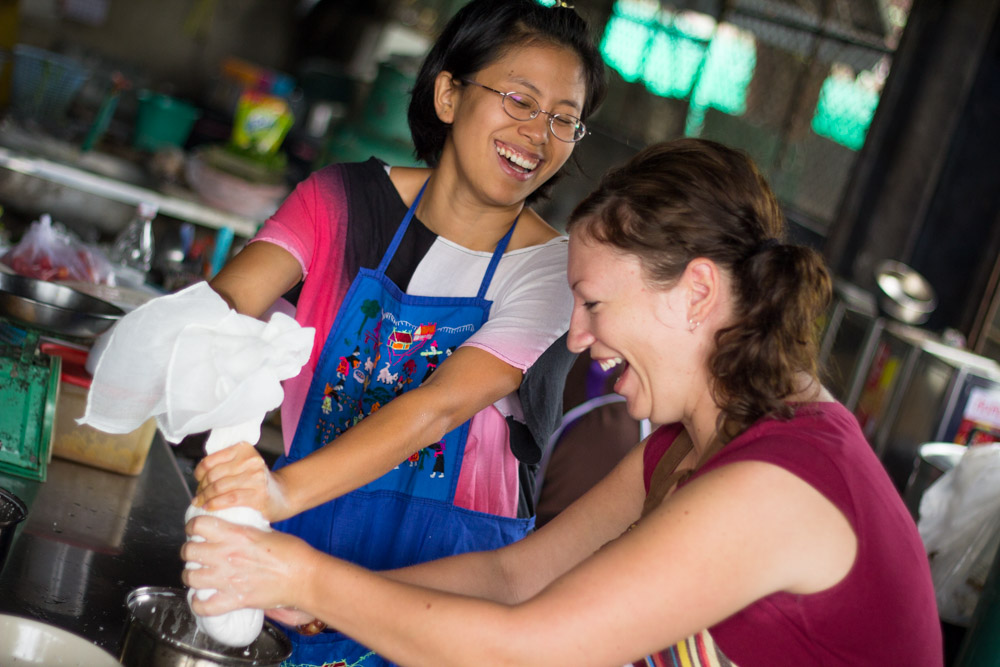
WE PLEDGE TO PROTECT ANIMALS
If you’ve been with us for awhile, you will know that we are passionate about animals. But that doesn’t mean we always get it right. In the early spring of 2014 we were staying in Puerto Escondido, Mexico, which is a great spot to see humpback whales just off the coast. Naturally, we were eager to see them. We hired a guide who appeared to be very knowledgable and respectful of the environment.
Towards the end of the tour we found ourselves near a mother and calf. Our tour guide, eager to get as good a view as possible, directed the boat captain to drive so close that we literally could have reached out and touched them. Over and over we edged closer, at danger to ourselves (one flip of the tail would have sent our small boat flying), and also likely increasing the stress of the mammals. We were thrilled and nervous all at the same time.
And honestly, we didn’t even think about the effect on the whales until well after. After publishing our blog post about the experience, a reader highlighted the issue. (Our story now acknowledges that we violated sustainable practices and offers resources for others who are considering such a tour.)
We pledge to never make this mistake again. We now know to be wary of “interactive encounters” and to do our research beforehand.
HOW TO KNOW? This is an excellent article with specific rules on what to look for when booking a wildlife excursion or vacation.
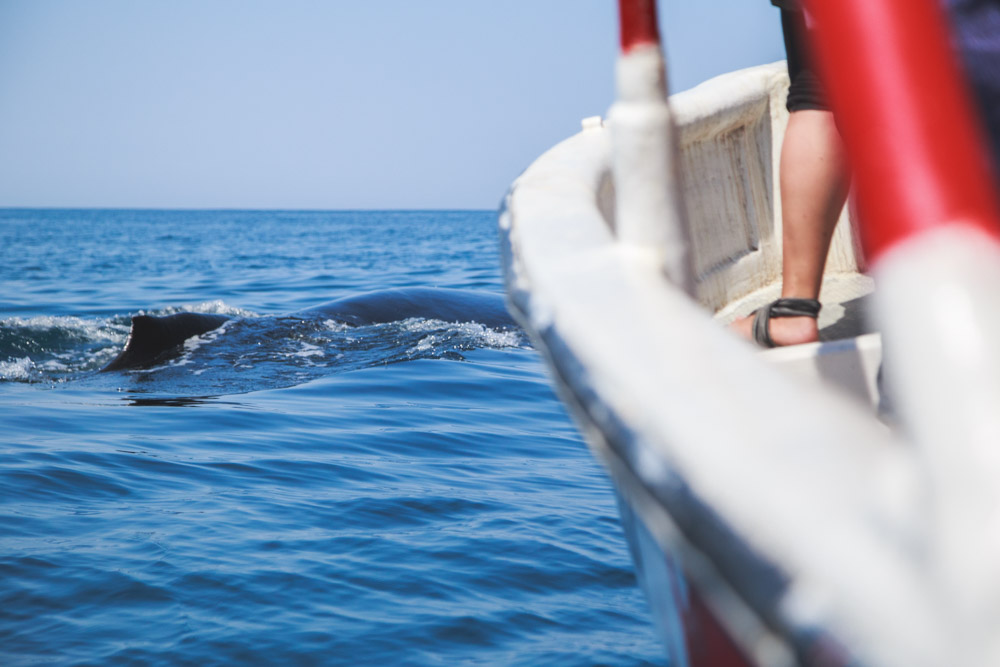
WE PLEDGE TO OFFSET OUR IMPACT
As frequent travellers, this has been an issue that has stuck with me. Even though we typically travel slow and do not take long-haul flights all that often, I know that traveling by air is a scourge on the environment.
Although truth be told, I have also become a little skeptical. Not of the climate debate itself, but of the organizations that are asking for my money to negate the effect of carbon emissions. How do I know that they are doing what they say they will? And how is it even calculated?
HERE’S HOW. Every effort should be made to try to reduce the impact first. I do often prefer to take a bus or train, but it’s not always possible. Also, in everyday travel, Pete and I are trying to walk or bike more, as well as ensure that our vehicle is well maintained.
Beyond that we have turned to myclimate.org (who are vetted by the WTTC) to make the carbon emission calculation, process the offset, and direct it to a specific environmental project. For an upcoming solo trip to one of British Columbia’s many islands, myclimate made the calculation very easy for me:

The stunning result, for this series of flights just to my neighbouring province and back, amounts to over one quarter of the maximum volume of CO2 a person should produce per year in order to halt climate change.
We pledge, here and now, to do more to reduce our impact. And when we can’t, we’ll offset it.
For this trip, my offset price was $18. I rounded up to $20 and paid to support the purchase of climate-friendly cookers in Madagascar.
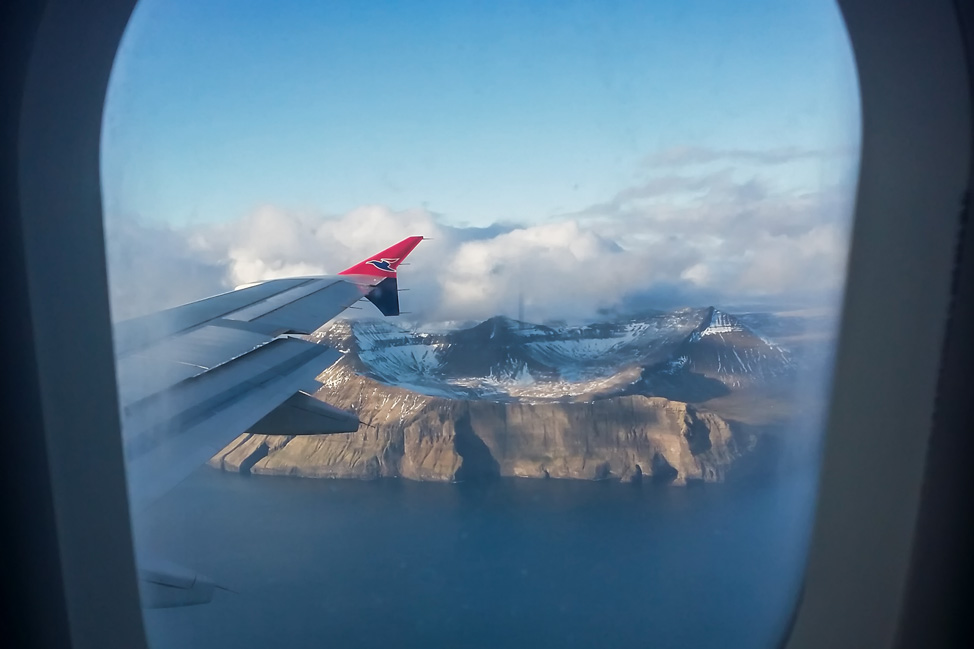
WE PLEDGE TO SPEAK UP
As bloggers, we have a unique opportunity to bring light to lesser-known issues we encounter around the globe. Like the existence of the rotting Ikateq base in Greenland, a mess of metal left behind by the US government after the second world war. Or how we told the story of a street protest outside our window in Phnom Penh that resulted in a death, and how we subsequently learned the effect our cheap clothing purchases have on the people who make them. (Credit also to our readers and fellow bloggers who rallied around our story via social media – H&M heard and acknowledged it).
We all have that responsibility though, regardless of the size of the platform on which we stand, to tell our stories and to use our voices not only to highlight wrong, but to celebrate right.
To that end, in a demonstration of our commitment to this pledge, we have written two emails, and following are excerpts of each:
to the management of sinorama holidays,
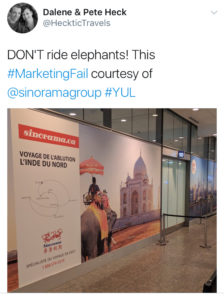
On a recent trip that took us through the Montreal airport, we saw an advertisement by your company that was disturbing. We tagged your company in the following tweet, and received no response.
And so we are writing this as a part of our pledge with the World Travel and Tourism Council to SPEAK UP when we see harmful practices within the industry.
We are asking you to do two things: (1) Stop offering elephant rides as a part of your offering, and (2) Consider your responsible tourism practices as a whole, as we could not find a policy for such on your site. In this critical time on our planet, there is no excuse for this.
to the management of intrepid travel,
We are writing this as a part of our pledge with the World Travel and Tourism Council to SPEAK UP about tourism practices we see in the industry. And in doing so, we just want to say thank you for what you do.
In the early summer of 2015 we took a tour through eastern Africa with Intrepid. As staunchly independent travellers, we were a bit skeptical at first, but given Intrepid’s stellar reputation, we went for it.
We were so pleased with our tour and wrote about it thoroughly on our blog. But what we didn’t do at the time (and wish we had done) is more loudly applaud you for your commitment to responsible travel. From educating us on day one of our tour on how to be more responsible, to handing out cloth bags for our use on the trip, and finally to standing up as a leader in the community and being the first to stop offering elephant rides – we just want to say that we were happy to support you then as a tourism partner and are thrilled to continue to do so by commending you now.
To close each email, we encouraged both Sinorama and Intrepid to respond with their ideas and action plans for continual improvement. We are hopeful for positive responses, and will update you with the progress.
***update***
Despite several follow-ups and alerts on Twitter, we received zero response from Sinorama Holidays. I suppose that we should not be surprised by this, but we are disappointed.
Intrepid, on the other hand, was quick to reply and happy to supply us with recent accomplishments and plans for continual improvement, which we were very excited to read. Here are the highlights:
- They have a long-term commitment to purpose beyond profit. This includes being the world’s largest carbon-neutral travel company. Since 2010, they have offset 1,500 trips, and then offset an additional 3,000 tonnes of CO2 emissions after the Trump Administration’s decision to withdraw from the Paris Climate Accord.
- Additionally, they have invested about $1.1 million USD to renewable energy projects since 2010. Intrepid has planted over 50,000 trees in Australia, Kenya and Thailand.
- Another impressive project centred on gender equality. In India, women make up less than 30% of the workforce. However, Intrepid Travel is committed to hiring local, female tour guides. At present, male tour leaders outnumber women 59 to 11. They plan to hire eight more female leaders this year.
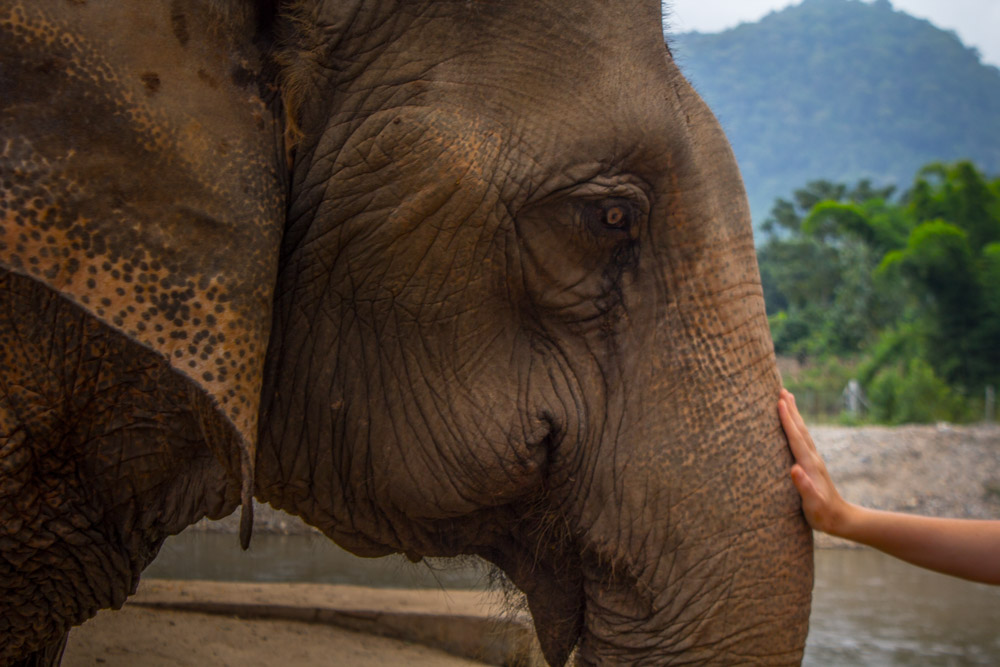
WE PLEDGE TO BE BETTER
Not any less important than the above are the remaining six pledges that we also encourage you to take.
Demand Sustainability: Ask to see the environmental and social policies of the companies you book travel with.
Respect People and Culture: Read about and understand the local culture of any place you are going to visit. Respect their way of life, their way of dress, and most importantly, the hosts themselves.
Conserve Water: Limit yourself to one 3 minute shower per day when visiting places where water is scarce. (This is, of course, good practice for all of us when at home too.)
Minimize Plastics: Be conscious of plastic use, minimize as much as possible, and recycle accordingly.
Respect History: Be respectful of the wishes of locals if they ask you to not visit sites of religious or cultural importance. If you are allowed to visit, show respect and behave appropriately.
Educate Yourself: Based on your experiences, continue to educate yourself, your family, and your friends with your knowledge of responsible travel. Talk to other experienced travellers and keep learning.
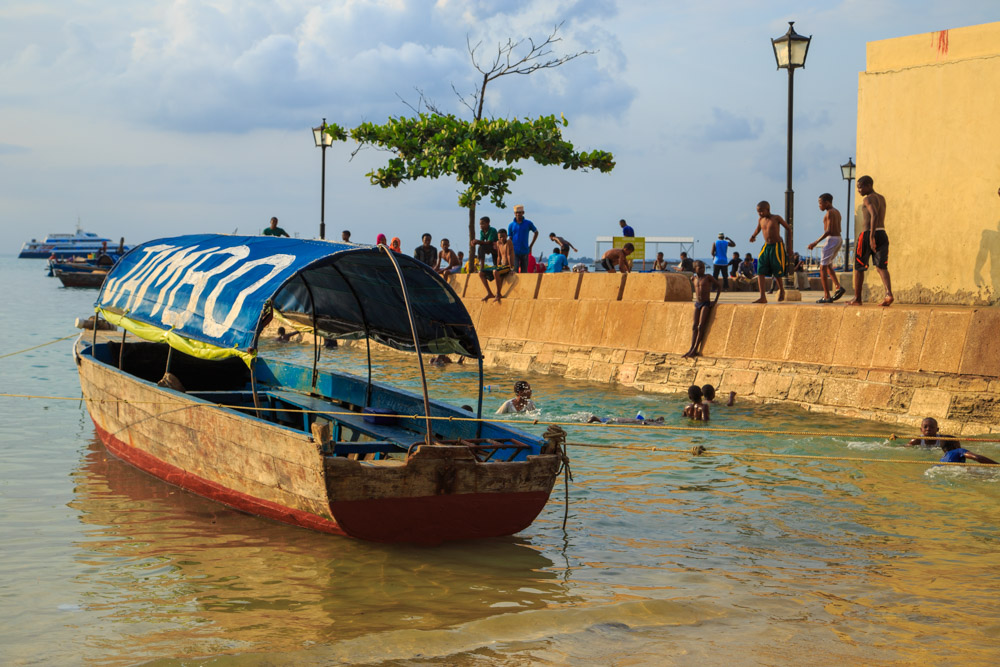
Over the next few months, we will continue to update you via our social media channels of our progress with the pledges. But that’s not all. We want to hear from you, too.
Start here. Make a simple pledge to do better. Make all ten pledges. Make up your OWN pledge.
And then tell us about it. Send us an email. Or, as always, join the discussion on our Facebook page.
We don’t ask for much from you, ever. But today we are, and we really don’t think it’s too much to ask.
We hope you’ll join us.
This post was produced by us, brought to you by the World Travel and Tourism Council.
